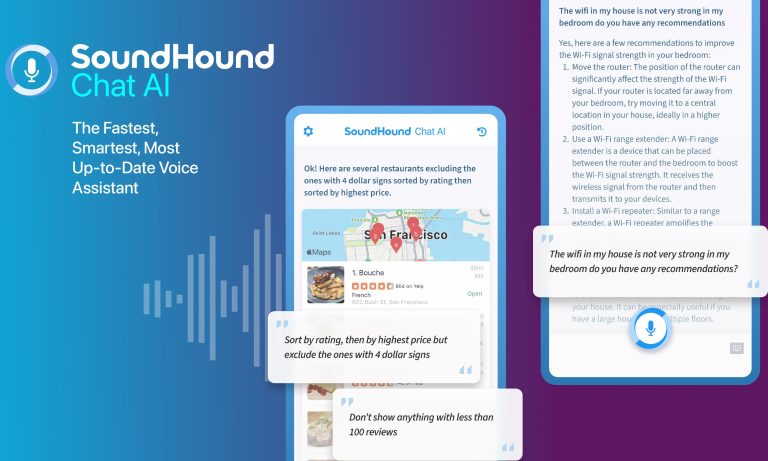The new SoundHound Chat AI is a voice assistant that enables brands and their customers to access generative AI models by talking, SoundHound AI said in a Thursday (March 23) press release.
“SoundHound Chat AI ushers in a new phase of voice-enabled, conversational AI that used to only exist in science fiction,” SoundHound CEO and Co-founder Keyvan Mohajer said in the release. “By combining the power of software engineering and machine learning with generative AI, we can finally deliver the digital assistant experience users have been desiring for decades.”
Together with allowing users to submit queries to generative AI models by speaking, the new app also selects the correct response from the most appropriate domain — whether ChatGPT or elsewhere, according to the press release.
It does so by employing a new approach that uses technologies to build knowledge domains, connect to different models, better understand queries and provide the best response, the release said.
“Bringing together voice-enabled Generative AI and the power of a best-in-class voice assistant, SoundHound Chat AI allows any business to build an incredible, next-generation voice experience for its users,” SoundHound AI said in the release.
Advertisement: Scroll to Continue
The release of this app comes shortly after researchers from ChatGPT creator OpenAI said in a paper that generative pretrained transformer (GPT) models, and the next-generation software tools built atop them, could impact 10% of the tasks done by 4 in every 5 workers in the United States and as much as half of the tasks necessary for 19% of the jobs.
As artificial intelligence (AI) evolves beyond automating simple tasks within walled gardens to augmenting intelligence across open-ended and often complex contextual scenarios, the world’s biggest tech companies are moving their AI experiments to center stage.
Google, Amazon, Microsoft, Meta and other tech giants are bringing their AI tools to the forefront of their businesses.
Voice assistants are becoming more common as well. PYMNTS research has found that 79 million Americans use voice assistants like Alexa and Google Home to help manage daily chores and their connected homes.
As smart homes get smarter, these consumers are growing increasingly accustomed to speaking commands they would have typed not long ago.

